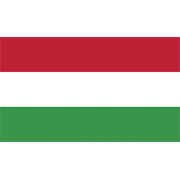General information
Hungarian National Tax and Customs Administration (NAV) continuously provides an opportunity for domestic and foreign software developers to participate in the development of the Online Invoice System (OnlineSzamla). The professional dialogue aims to develop the Hungarian Online Invoice System according to the needs of the users, following the suggestions of the developers of the invoicing software. Hungarian NAV is the first agency on GitHub to provide software developers with the opportunity to work together to shape the future of the data delivery systems. In addition, they can have a direct dialogue with the system developers and experts in the online forums. Based on the feedback received by Hungarian NAV, the Online Invoice System (OnlineSzamla) has already been expanded with several functions and possibilities. A new direction of the system’s services is the support of electronic invoicing. Hungarian NAV also assessed taxpayer's and developer needs, which determined the further development of the service. The support of electronic invoicing in the Online Invoicing system is not based on a legal obligation but has evolved from market needs and proposals received by Hungarian NAV. In addition to future developments, the continuous maintenance of the system and the strengthening of existing functions are also a high priority. The Online Invoice System is constantly adapting to the needs of external use. Hungarian NAV pays special attention to the continuous improvement and updating of the system and provides the possibility of data queries and its continuous expansion to users in addition to legal compliance.
Other news from Hungary
From Online to e-Cash RegistersKOBAK Portal in Hungary
 Hungary
Author: Tara Nedeljković
Hungary
Author: Tara Nedeljković
Hungary’s KOBAK portal, operated by the Tax Authority (NAV), is the central online platform for managing both traditional online cash registers and the newly introduced e-cash registers, making its use mandatory for the latter. Read more
Subscribe to get access to the latest news, documents, webinars and educations.
Already subscriber? Login


Hungarian NAV Clarifies: Stricter Controls for Invoices and Data Reporting
 Hungary
Author: Tara Nedeljković
Hungary
Author: Tara Nedeljković
Hungary’s tax authority (NAV) will enforce stricter invoice data reporting rules from September 15, 2025, rejecting submissions with certain data errors instead of issuing warnings and imposing penalties up to one million forints for non-compliance. Read more
Subscribe to get access to the latest news, documents, webinars and educations.
Already subscriber? Login


Using the Customer App in Hungary with E-Cash Registers: Key Questions Answered
 Hungary
Author: Tara Nedeljković
Hungary
Author: Tara Nedeljković
Hungary’s customer app enables consumers to download, store, and manage e-receipts from e-cash registers, though its use is entirely optional. The app does not require registration or personal data, using anonymous search keys to retrieve receipts, and supports features like QR/NFC sharing for loyalty programs or invoice requests. Read more
Subscribe to get access to the latest news, documents, webinars and educations.
Already subscriber? Login


E-invoicing requirements in Hungary: Overview and main requirements
 Hungary
Author: Tara Nedeljković
Hungary
Author: Tara Nedeljković
Hungary’s e-invoicing framework combines a B2G receiving mandate, real-time VAT reporting, and a new sector-specific B2B requirement. Since 2019, public authorities must accept invoices compliant with EN 16931, while all taxpayers must report invoice data in real time through the NAV Online Invoicing System. Read more
Subscribe to get access to the latest news, documents, webinars and educations.
Already subscriber? Login


E-cash registers and online cash registers in Hungary: questions and answers
 Hungary
Author: Tara Nedeljković
Hungary
Author: Tara Nedeljković
In Hungary, businesses can choose between online, hardware-based, and cloud-based e-cash registers, but their use depends on the activity and sales channel. Online or hardware-based e-cash registers are required for activities where cash register use is mandatory, including mobile shops and service points, while cloud-based systems are only allowed for non-mandatory activities. Read more
Subscribe to get access to the latest news, documents, webinars and educations.
Already subscriber? Login


E-Cash Registers, Receipt Storage, and Data Correction in Hungary
 Hungary
Author: Tara Nedeljković
Hungary
Author: Tara Nedeljković
Hungary now allows taxpayers in specific sectors—such as certain retail trades, catering, accommodation, and pharmacies—to opt for electronic cash registers (e-cash registers) instead of traditional fiscal devices. E-receipts and e-invoices from these systems will only be valid for tax purposes if they comply with strict identification, content, and data transfer rules under Decree 8/2025, with new retention provisions allowing secure AEE storage until 2033 in lieu of separate receipt archiving. Read more
Subscribe to get access to the latest news, documents, webinars and educations.
Already subscriber? Login


Hungary’s e-Cash Registers: New Cybersecurity and Technical Updates
 Hungary
Author: Tara Nedeljković
Hungary
Author: Tara Nedeljković
Hungary’s Ministry for National Economy has proposed a draft amendment to Decree No. 8/2025, introducing stricter cybersecurity requirements for both cloud-based and hardware-based electronic cash registers (e-cash registers) in line with the Cybersecurity Act effective from January 2025. Cloud-based systems must undergo cybersecurity audits by registered auditors, while hardware-based devices require certification from the tax control unit manufacturer, ensuring compliance with national cybersecurity standards. Read more
Subscribe to get access to the latest news, documents, webinars and educations.
Already subscriber? Login

